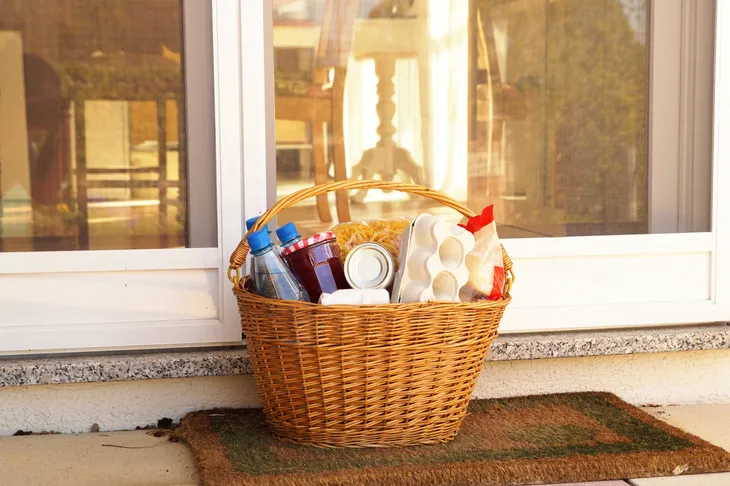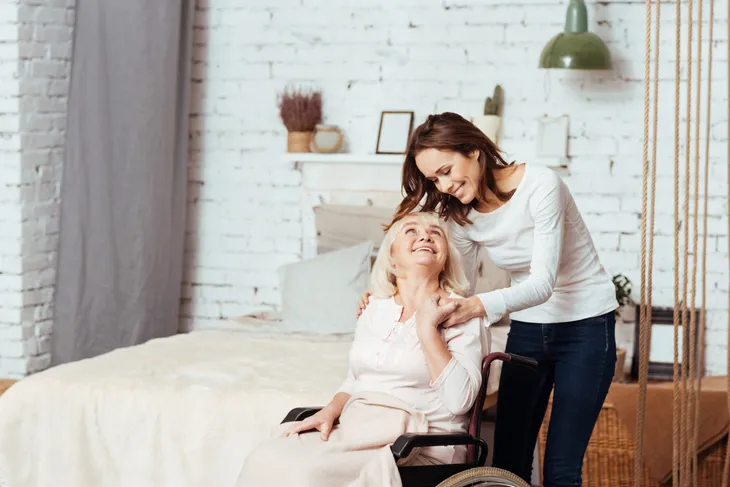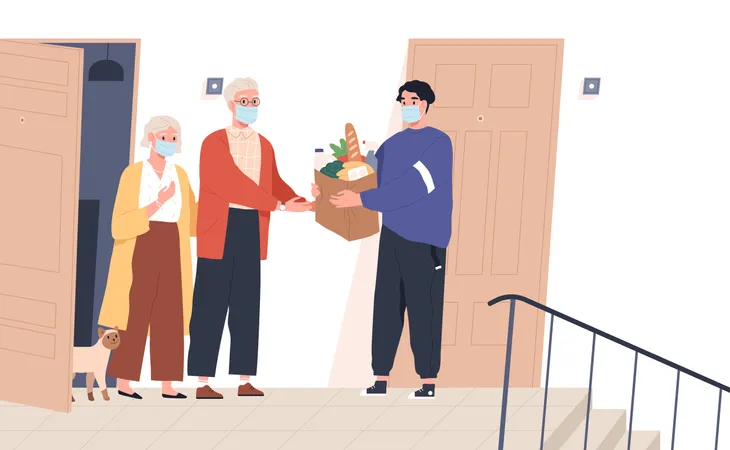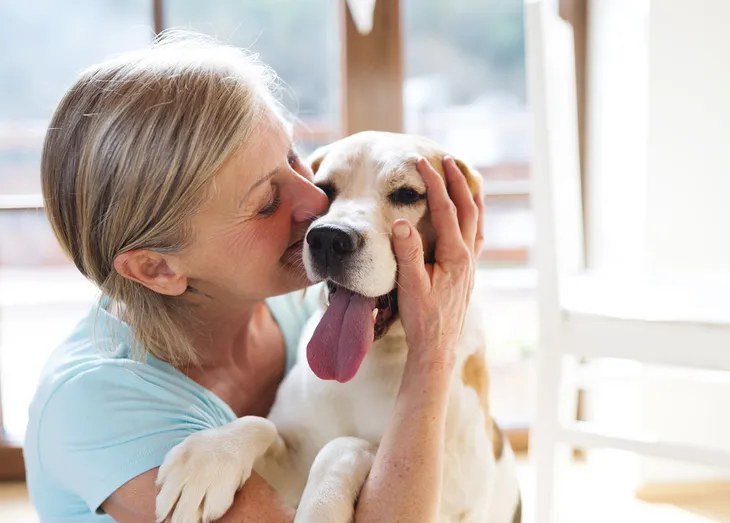Senior citizens face many problems in society. Two of the most significant issues are isolation and depression. Increasing health problems as people age lead to a corresponding decrease in the ability to get out and socialize. Some find they can no longer drive or even walk, further diminishing their social abilities.
These are tough times right now for everyone, especially seniors. Many of them are scared and all of them are lonely as they are unable to see their friends and family. Now more than ever, we need to rally around our senior community to help them stay connected and healthy. Here are some great ways to help keep them connected while also protecting their health.
Want senior content delivered straight to your inbox? Sign up for our exclusive email list and receive articles and news on diet & nutrition, fitness, and mental health dedicated specifically to our senior audience!
Send a Care Package
Normally, family members and friends do their best to visit their loved ones who live in a nursing or retirement home as much as they can. Even then it’s likely not every day or as much as they’d like. These days, it’s even harder. Most of these housing facilities are not allowing any outside visitors, so many of their residents are at risk of becoming extremely lonely.
A great way to ease some of this loneliness is by putting together a care package. You can fill this care package with some of their favorite treats, tea or coffee, a handwritten note so that they feel more connected, or maybe some self-care items like a nice scented candle or a new book.
Get Them Connected
It’s not surprising that many seniors feel intimidated by technology — they were born before the invention of the internet. Now, things change so rapidly that even younger generations struggle to keep up with the latest trends.
Seek technology options catered to the older generation. You can find specialty tablets that empower grandma or grandpa to start a video call with relatives or play music, all with the touch of an icon. Smart-home technology that operates on voice-activated commands can also help.
Find Clubs They Can Join
People’s hobbies and interests don’t just disappear with age. Believe it or not, your grandparents still have their own interests! Help them explore their passion by finding an online club they can join. There are plenty of online book clubs where they can chat about their favorite reads and discuss compelling plot twists. They could even take an online class and learn a new language.
Virtual groups are ideal because your loved one can attend even when they can’t venture out to the library or community center. For example, Silver Sneakers offers on-demand workout classes for members to access and enjoy from anywhere.
Suggest Community Activities
It’s not always possible for seniors to travel and that’s okay. They can continue their community service efforts from the comfort of their homes. Thanks to technology it’s easier than ever to connect with others online from the comfort of their own home. Political organizations, churches, schools, and charity organizations all offer ways to get involved either over the phone or through text.
Many houses of worship now offer virtual services for flock members who can’t leave their homes to attend. Even if your favorite senior’s usual parish doesn’t offer these amenities, you can help them find alternatives. Often, faith groups provide a variety of social activities, including periodic check-ins via telephone.
Rally the Existing Support Network
Unhealthy family dynamics can leave some members feeling as if they shoulder the entire burden of caring for elderly members. Do your best to avoid such conflicts by having proactive conversations with your siblings about the need for support.
Work out a schedule for making calls and planning visits. Try not to jump to conclusions that people are intentionally selfish with their time — educate them about the need.
Buy Them a Journal
Many seniors have exciting life stories to share, but younger generations often lack time to sit and listen to a lengthy yarn. A beautiful Moleskine journal makes an outstanding gift, and grandma or grandpa can fill the pages and pass it on as an heirloom.
More tech-minded older adults, as well as those with conditions like arthritis that makes handwriting painful, can find online diary apps. Try Journey, which allows users to attach videos and photos. Penzu is another excellent option, as your loved one can customize their digital journal’s cover and fonts.
Help Them to Shop
You might consider running to the store an inconvenience, but for older adults, it can become a social event. However, lugging heavy loads of groceries can prove painful, and adding public transportation into the mix makes the job even more cumbersome.
If you have the time, escort them to the grocery store (if they have the mobility) — many feel better if they can select products. If not, offer to be their not-so-secret shopper. Go run errands for them and drop them off at their doorstep.
Play a Game with Them
Even if you live on opposite sides of the country, you can still play games together. Zynga recently launched Crosswords With Friends, an extension of the favorite online Scrabble-like pastime.
Many gaming consoles also allow for multiplayer remote play. If you have the budget, you can get one for granny and let her play with the grandkids — even if they’re in Terre Haute and she’s in Phoenix.
Synchronize Your Watches
If you live in a different time zone, it can prove challenging to remember when the appropriate calling times are. Does the senior you love hesitate to reach out? If so, why not set up reminders on their phone so that they don’t miss a chance to wish their grandchildren goodnight?
Set a weekly time and date for checking in and chatting about your days. Your loved one will be thrilled with the chance to talk.
Consider a Pet
Pets provide seniors with various health benefits, from keeping them more active to staving off loneliness. However, don’t rush out and pick up a puppy before doing any research. Pets do come with a financial commitment, so make sure that the person you’re giving this pet to has the budget and desire for a pet. We don’t want these pets ending up in a shelter.
Make sure to have a backup plan for the animal if their owner needs to go into a home. Pet trusts ensure the ongoing care of canine and feline companions if something happens.
Support Nursing Home Staff
If your aging loved one is in a nursing home, they are hopefully surrounded by a loving staff that takes care of them when you’re not around. However, staffing shortages can mean that not all residents get the socialization they need to thrive.
Contact the facility and ask what you can do to help. For example, you could organize a weekly game of canasta for your loved ones and some of their friends. You can also write thank you notes, send coffee, or gift cards.
Health Effects of Isolation and Depression
Have you ever felt so blue that you didn’t see the point in getting out of bed? Isolation and depression lead to adverse physical and mental health issues.
These not only decrease life expectancy — but they also rob the quality from what should be an enjoyable time in life.
Elevated Risk of Heart Disease
Recent research on Dutch heart patients reveals a saddening trend. Scientists looked at 13,500 patients who had conditions ranging from heart failure to arrhythmia. They discovered that those who reported feeling lonely had poorer health outcomes — regardless of the severity of their disease or external factors, such as smoking.
Patients who said they had no one to talk to had double the mortality rate of those with a thriving social network.
Increased Dementia Risk
Another study evaluated the association between the chances of developing dementia and loneliness. Those who reported feeling isolated had a 40-percent higher risk of the condition than those who had more active social lives. The effect occurred regardless of race, gender, ethnicity or educational background.
Lowered Immune Response
According to a meta-analysis, a lack of social connection increases health risks as much as smoking 15 cigarettes each day. Experts hypothesize that loneliness triggers the fight-or-flight response that produces anxiety in human beings.
While this mechanism helps when someone spies mama bear in the woods, over the long term, stress increases your production of cortisol, a stress hormone that lowers your immune response.
Addiction and Deaths of Despair
While midlife deaths of despair continue to rise, those who reach retirement age aren’t immune from addiction and suicide. While some elderly individuals take their lives to escape chronic pain, others can no longer bear the isolation of living alone.
Some may turn to substance use to escape reality. Drug and alcohol abuse also increases the chances that a senior citizen will fall and sustain a severe injury.


















